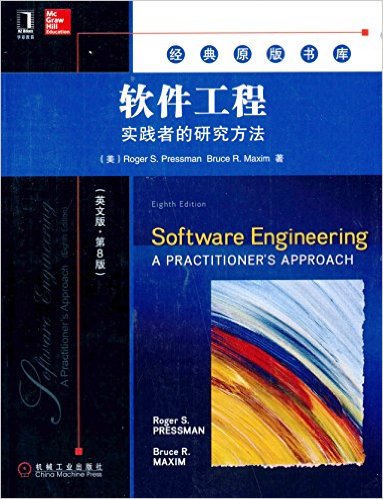| 商家名称 | 信用等级 | 购买信息 | 订购本书 |
 |
软件工程:实践者的研究方法(英文版)(第8版) |  |
|
 |
软件工程:实践者的研究方法(英文版)(第8版) |  |

网友对软件工程:实践者的研究方法(英文版)(第8版)的评论
This is a terrible book which makes the implicit claim that software engineering is a much more organized discipline than it actually is, and most likely than it ever can be. I originally gave it one star, but bumped it to two, simply because I'm not sure there is a better book available. Yet, this doesn't make the problem go away.
Software engineering, to put it in computer science terms, is carried out in the world of natural language rather than formal language. There are limits to the precision of the meaning of words, and limits to the precision with which formal processes can define human interactions. This would not be a problem if the book accepted these limits, but it attempts to push well beyond them. Pretending to say more than we can say about something results in saying less than we could have said if we hadn't pretended. The book follows the approach of defining words in terms of other words which are themselves badly defined, or promised to be defined later (a promise which is rarely kept), or are self-referential (architecture is architectural). And then, maybe, another model will be introduced which defines the same words differently (demonstrating the words don't really have a particular meaning) or uses different words for the same things, so that terms don't even have consistent meaning across a chapter. Then, these terms are used to discuss processes as if they've been rigorously defined, when they really haven't been. This leaves us pretending to have an engineering discussion with the precision of equations when we are having at best a social discussion with much less precision than that. If you enjoy reading well-built arguments you will constantly find jarring transitions in this book, along the lines of "it follows that," when quite simply, it does NOT follow.
And then this is made worse by the fact that this is a modern textbook, with a modern test bank, in which it's assumed that the *correct* answer depends on the exact keywords the author used on page 391, despite the fact that even the author would certainly admit that this is just one way of looking at the thing.
As I already said, there might not be a better effort available, but that doesn't mean this book isn't bad. In fact, it's bad enough that taking the class associated with this book made me want to quit studying computer science or even leave college. I won't do that, because the cost of doing so is too great in terms of what I need to accomplish for other reasons, but I view reading this book almost entirely as a cost to be borne in the service of a greater good. Someone, for Gods's sake, please write a better one.
This book is a simple scan of the hard copy book. It's just a bunch of images in a PDF file. I made the mistake of renting this book and there doesn't seem to be a way to return the book. The book is completely useless. Never, never buy a McGraw-Hill etext. You can't read the text on a small screen, like a phone. You can't adjust the text size. It's easily the worst purchase I have made on Amazon. I'm pissed off for paying $90 for this piece of crap. You can get the same quality by pirating the book off the internet.
Thoroughly written, but confusing sometimes.
Bloated, so bloated. The authors seem to say the same things over and over again, using slightly different "keywords" which all blend together and "methodologies" which are basic common sense to anyone with a grade school education.. The fact that the other five reviews are all five stars blows my mind. I'm convinced they are almost entirely fake, considering the 7th edition of this book is currently rated somewhere around 1.5 stars and the books are nearly identical minus a few additions about mobile development and some chapter reshuffling. I feel very sorry for anyone who is unlucky enough to have this as a required text for a Software Engineering course, myself included.
There's really not any software engineering in this book. The fact that it's somehow made it to an 8th edition is simply marketing magic. You'd learn more software engineering from reading the wikipedia page on the topic, or from the Tale of Two Systems in Pete Goodliffe's book on Becoming a Better Programmer, or from How Linux Works, or from the Linux Mint Tutorial section on what a package management system does. Or really from just taking an introduction to programming course. Not worth the money (or even close). Engineering is about doing something. Nothing gets done in this book. Nothing at all.
喜欢软件工程:实践者的研究方法(英文版)(第8版)请与您的朋友分享,由于版权原因,读书人网不提供图书下载服务